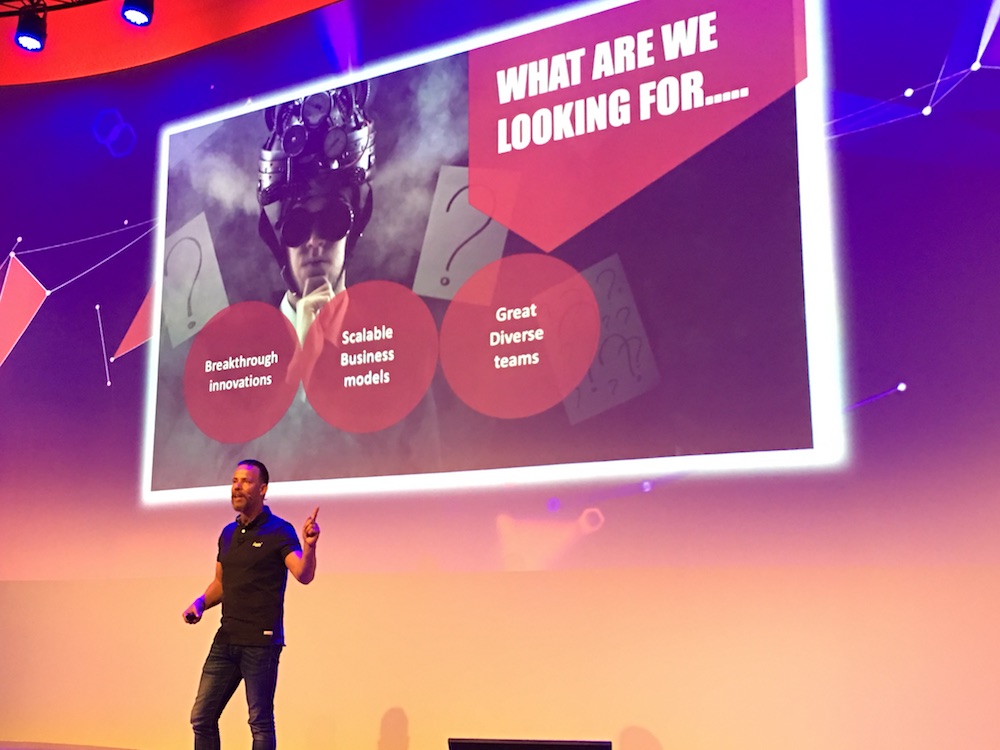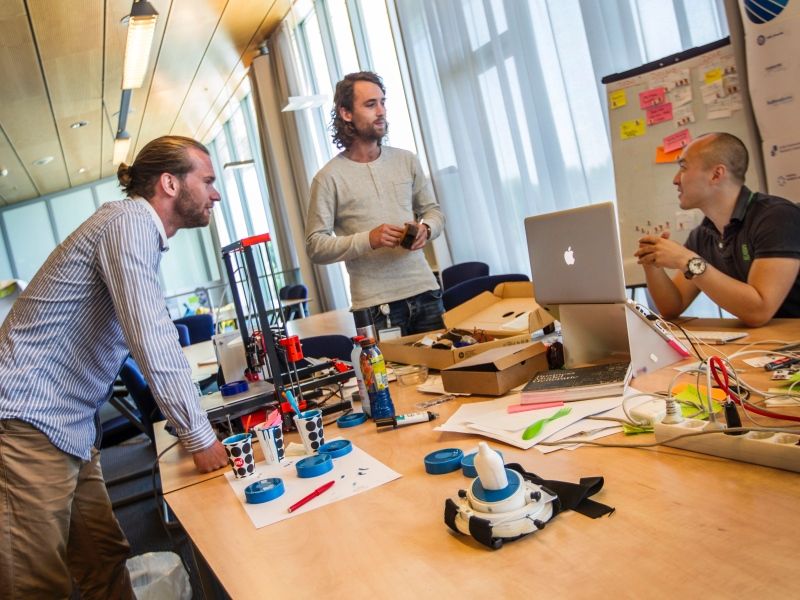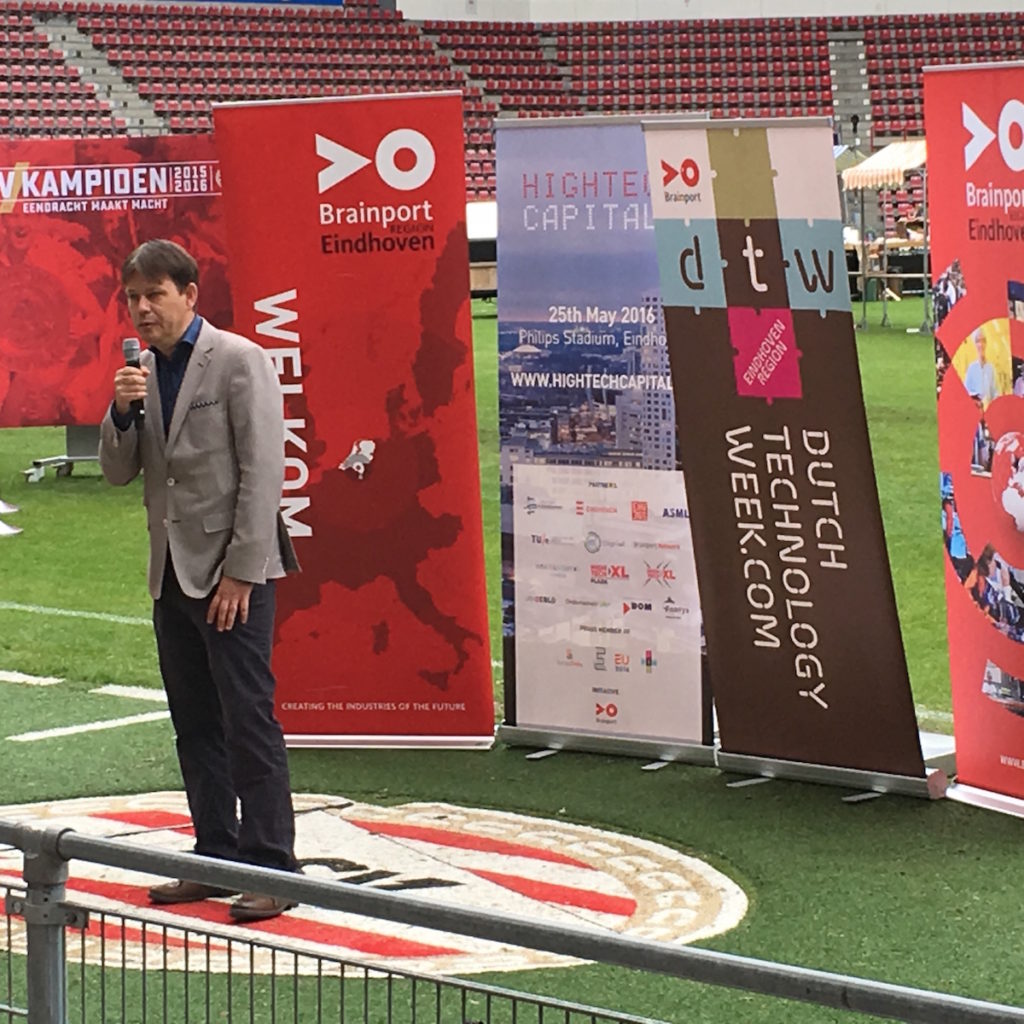(Editor’s note: The first version of this story had out-of-date details about Xandra van Wijk. That information has been updated.)
The United States and the Netherlands are – on many levels – a lot alike. Our Protestant work ethic came from Holland. English is just Dutch 2.0, and don’t forget that New York City used to be New Amsterdam.
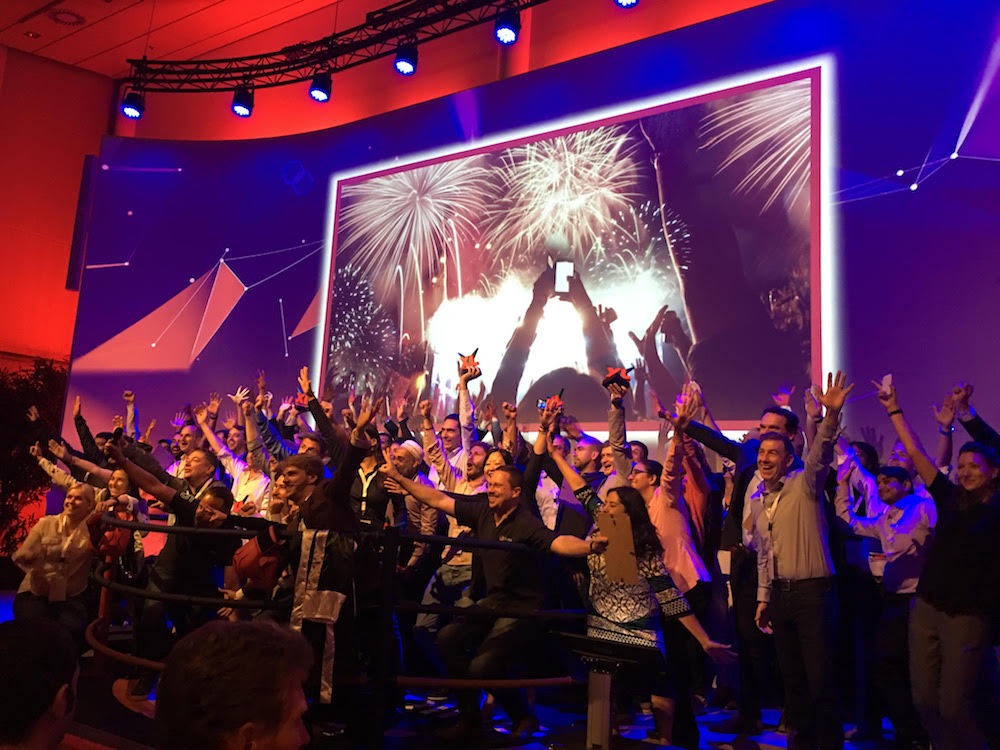 Our first billionaires were descended from venerable Dutch stock including Vanderbilts and van Rensselaers.
Our first billionaires were descended from venerable Dutch stock including Vanderbilts and van Rensselaers.
But if there is one complete disconnect, it’s in the modern start-up mindset.
In the U.S., geeks, techies and coders grow up worshipping America’s pantheon of digital pioneers and venture capitalists including Steve Jobs, Jim Clark, Marc Andreessen, Peter Thiel (who is technically German), Mark Zuckerberg, Larry Page and Sergey Brin (technically Russian), Mary Meeker, and Elon Musk (technically South African).
They are our exemplars of vision, start-up moxie and risk-taking.
In the Netherlands, when there’s a big tech/start-up event, the Dutch trot out their royalty and government officials instead of their actual stars.
It drives me crazy.
Having been in the information delivery business for a while, I know the value of knowing about the most promising people and ideas in emerging tech scenes. Which is why we keep a running list of startups in Eindhoven, our HQ, for our investor friends back in the South and Midwest.
Of course, the Dutch tech scene is far bigger than Eindhoven. There are four centers: Amsterdam, Eindhoven, Delft and Utrecht. Delft alone has produced a number of successful startups including ViCentra, which makes insulin pumps, Bluebee’s cloud-based analysis of genetic information and Nightbalance, which makes a sleep-position trainer.
The most successful are consumer-related such as TomTom, Adyen and Booking.com. But for every unicorn, there are hundreds of high-tech startups in fintech, medtech and ultra-high tech categories such as photonics and photolithography.
It’s an exciting scene, probably second only to Sweden and way ahead of Germany, which really only has one big hit: Rocket Internet. I think we also have a journalistic obligation to tell you about the Dutch startup and tech scene because it’s going to get even bigger.
I’m going to get a lot of blow-back for this because Dutch culture discourages the cult of the individual. Their corporate culture values humility and encourages team collaboration and educational attainment while discouraging excessive risk.
Which is why the Netherlands owns the conventional worlds of banking, insurance and real estate, but lags a bit behind Silicon Valley.
The Netherlands hasn’t produced a Supercell or a Spotify, and lack of early stage capital remains a problem. That hasn’t kept this eco-system from producing world-changing innovations.
We’re going to approach this a little differently. We’re going to start with people in Eindhoven we know directly. The global leaders follow.
Eindhoven
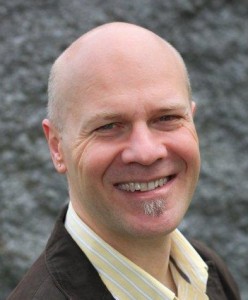 Michel Decré: Decré founded Sapiens with Sjaak Deckers and Hubert Martens. An internal project at electronics giant Philips, Sapiens developed neuro-stimulation technology which reduced tremors in people with conditions such as Parkinson’s Disease. Just as they had their first clinical validation, Philips bailed on them, Decré said during HighTechXL’s recent Impact Summit. After years – even decades – at Philips, Decré, Deckers and Martens quit in 2011 to start Sapiens. They raised millions, achieved their goal, then sold Sapiens to U.S. medical-equipment giant Medtronic for $200 million in 2014.
Michel Decré: Decré founded Sapiens with Sjaak Deckers and Hubert Martens. An internal project at electronics giant Philips, Sapiens developed neuro-stimulation technology which reduced tremors in people with conditions such as Parkinson’s Disease. Just as they had their first clinical validation, Philips bailed on them, Decré said during HighTechXL’s recent Impact Summit. After years – even decades – at Philips, Decré, Deckers and Martens quit in 2011 to start Sapiens. They raised millions, achieved their goal, then sold Sapiens to U.S. medical-equipment giant Medtronic for $200 million in 2014.
Happy ending, right? Noooo. In 2016, Medtronic shuts down the whole project. Yes, our entrepreneurial heroes got rich, but Decré said they never really achieved their purpose. Now, he’s back in the game with Salvia BioElectronics.
Sjaak Deckers: Deckers founded Sapiens with Decré. Now, Deckers is CEO of G-Therapeutics, a partnership with Swiss researchers working to reverse paralysis. This new approach to spinal-cord injuries uses an implantable neuro-stimulation system for the spinal cord with real-time motion feedback.
If one thing separates the Dutch scene from others, it’s the level of education. Deckers, for example, has a PhD in experimental physics from University of Utrecht, and an MBA from TIAS Nimbas in Tilburg. And that’s not uncommon.
Guus Frericks: Frericks is the co-founder of HighTechXL hardware accelerator in Eindhoven. During the year we’ve been based in Eindhoven, we’ve watched what started as an accelerator for high-tech hardware expand into three tracks: Medtech, High Tech, and fintech.
Frericks and his staff, including American-born financier Betsy Lindsey, have brought promising startups to Eindhoven from all over the world. Frericks is one of the few on the local scene who embraces American-style bare-knuckle competition in the effort to get Eindhoven the global reputation it deserves as a tech center. Now, HighTechXL has operations in China, and is working on the U.S.
Lex Hoefsloot: Hoefsloot is CEO of Lightyear, the next step in Eindhoven’s effort to bring a practical solar car to market. Hoefsloot, like the rest of the Lightyear team, came out of the Solar Team Eindhoven effort at Technical University Eindhoven.
Nina Maurer: Maurer, who is Swiss, is the founder of speedyrating, a startup that was born after a startup weekend. The speedyrating concept is to help physical retailers to get more data about their customer satisfaction even on a daily basis with devices retailers can place directly in-store. Customers can participate in a simple survey on the spot. Maurer won an award that led her to explore the startup scene in Shangai and Bangalore but decided to settle in Eindhoven.
Steven Nelemans: Nelemans is a co-founder and CEO of Amber Mobility. Amber’s goal is to build an autonomous “OV car,” a reference to OV bike, the bike-sharing service in the Netherlands run by the Dutch train system. Amber is developing a self-driving car that’s durable enough to be shared constantly for years by different users without breaking down. Amber Mobility will be a transportation option that gives people the freedom of owning a car without having to own a car.
Fabio Bambang Oetomo: Oetomo is founder of Bambi Medical. Bambi, a recent graduate of HighTechXL accelerator, has serious potential with the mostly Dutch team creating technology allowing doctors to monitor premature infants’ vital signs without using needles or adhesive electrodes, eliminating all discomfort.
Valer Pop: Pop is founder of LifeSense. LifeSense increasingly is the startup everyone is talking about as one of Eindhoven’s most promising. A team led by Romania-born Pop has developed wearable sensor technology that helps people living with involuntary urine loss including women who experience incontinence during pregnancy. Potentially a 51-percent global market.
Julia van Zanten is cofounder of LifeSense. With a design background she brought the innovation of the absorbent underwear to the company.
Maarten Steinbuch: Steinbuch is CEO of Medical Robotic Technologies which includes Preceyes, the medical robotics company. Preceyes is focused (so to speak) on ocular surgery, its technology supporting surgeons in performing high-precision procedures, including high-precision drug delivery. Last year, Preceyes tech allowed surgeons to operate inside the eye and restore sight … a world first. Preceyes is a spin-off of TU/e, where Steinbuch is a professor. It’s raised 50 million euros.
Steinbuch is one of the most versatile and connected people in the emerging Eindhoven scene. His son Yuri developed the STORM Wave electric motorcycle project, riding the machine around the world last summer to prove its practicality.
Usono: Collectively, they’re three young guys from Technical University Eindhoven. Benjamin Tchang is the scientist who does the research, and Victor Donker and Jori Verbeek are the designers. Together, they’re producing devices that allow more flexibility for using ultrasound technology, devices for both doctors and sports trainers. They were the first startup team we met in Eindhoven and immediately knew they had the Right Stuff. Look for big news from them ….
Peter Weijmarshausen: The founder of Shapeways. Weijmarshausen is another one of the first startup stars we met in Eindhoven.
He founded Shapeways in 2007. After finding funding in New York, he turned Shapeways from an internal Philips project into one of the most innovative 3D printing companies in the world.
Shapeways retains operations in Eindhoven.
Bert-Jan Woertman: Woertman is the former marketing and communications chief for High Tech Campus Eindhoven. But he makes the list because of his new job as commercial director for Technical University Eindhoven. TU/e, along with the University of Amsterdam and Technical University of Delft, produces the talent who is busy reinventing how we live, and Woertman is one of the best networkers in Europe.
Netherlands-based innovators
Jitse Groen: Groen founded online food-0rdering service Takeaway back in 1999 and is still CEO of what is now a publicly traded company.
Takeaway’s orders rose 46 percent in 2016. The company said it received 49.3 million delivery orders on its European platforms last year. Its Dutch platform thuisbezorgd.nl saw sales shoot up by 33 percent to 21 million orders from 18 million. German orders jumped 48 percent to 17.3 million from about 9 million.
Takeaway operates in most of Europe including Belgium, Austria, the UK, Poland and Switzerland.
Chris Hall: The co-founder of Bynder, Hall doesn’t exactly have a Dutch name. But he was educated at Erasmus University in Rotterdam. In this video, you can hear what sounds like an American accent. Sort of.
Hall created Bynder, a SaaS model that handles brand management and digital asset management that’s made Deloitte’s Fast 50 Rising Star list and raised millions. Bynder clients include KLM, Axel Nobel, Groupon and Spotify.
The firm has offices in Amsterdam, Rotterdam, London, Boston, Barcelona and Dubai.
Dave Dirks: Dirks is an attorney in Amsterdam who works with a number of startups and has done deals for European media companies such as Helsinki-based Sanoma.
He also is managing partner of EVO Venture Partners, which invests in early-stage IT infrastructure startups.
Pieter van der Does: Van der Does founded the Adyen payments platform in 2006. Adyen, based in Amsterdam, works with Facebook, Uber, Netflix and Spotify, processing $90 billion in transactions last year on $727 million in nearly-doubled revenue. One of the Netherlands’ rare Unicorns.
Sytse “Sid” Sijbrandij and Dmitriy Zaporozhets: Sijbrandij, who is Dutch, and Zaporozhets from Ukraine are the founders of Gitlab, which is often called “Facebook for developers.” The subscription software allows coders to collaborate in real time … everything from trading code to planning to testing. Customers include IBM, NASA, Sony, Alibaba and SpaceX.
Geert-Jan Bruinsma: Bruinsma is founder of Booking.com. Most people don’t realize travel discount website Booking.com predates the biggest U.S. digital companies including Facebook and Google. Founded in 1996 by Bruinsma, a computer scientist, it was bought by Priceline in 2005. Now, Bruinsma is back in the startup game with Staying.
Evert Jaap Lugt: Lugt is managing director of incubator Yes!Delft. Lugt is one of the most successful internet entrepreneurs in the Netherlands, a guy who sold his chat app Nimbuzz for 137 million euros in 2014.
Vincent Steckler: Could this become a trend? One of Europe’s top tech execs is an American expat. From California, no less. Steckler left Symantech in Mountain View, Calif. to become CEO of Avast, a software security firm founded in Prague, but now is headquartered in Amsterdam.
Avast acquired the Czech Republic’s other software security firm, AVG, last year for $1.3 billion.
Doki Tops: Tops is part of a Dutch crew that founded streaming game service Utomik in 2014. Though it still has operations in Eindhoven, the company is now based in The Valley.
Xandra van Wijk: van Wijk was a lead game designer at King, specializing in mobile and social games development. Currently working on Farm Heroes Saga, van Wijk started her career in games at Spil Games after earning degrees at Delft University of Technology.
In 2016 she was part of the BAFTA games awards jury and has spoken at a number of industry events. She is now at Space Ape Games, based in London.
Corinne Vigreux: Vigreux co-founded Amsterdam-based TomTom navigation technology back in 1991, one of Europe’s early next-generation tech companies. Vigreux teamed up with Peter-Frans Pauwels and Pieter Geelen. Technically French, Vigreaux remains a player as both an executive and investor. With Vigreaux as managing director of its consumer group, TomTom is moving into GPS-enhansed wearables.
Co-CEO of Dispatches Europe. A former military reporter, I'm a serial expat who has lived in France, Turkey, Germany and the Netherlands.


